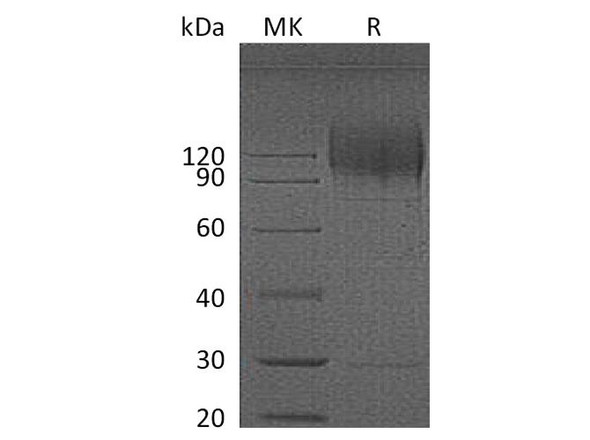Human immunodeficiency virus type-1 (HIV-1) regulatory Tat protein plays an essential role in viral replication and infectivity. In addition, during acute infection, Tat is released extracellularly by infected cells and is taken up by neighboring cells where it transactivates viral replication and increases virus infectivity.HIV-1 Tat activates transcription of HIV-1 viral genes by inducing phosphorylation of the C-terminal domain (CTD) of RNA polymerase II (RNAPII). Tat can also disturb cellular metabolism by inhibiting proliferation of antigen-specific T lymphocytes and by inducing cellular apoptosis. Tat-induced apoptosis of T-cells is attributed, in part, to the distortion of microtubules polymerization. LIS1 is a microtubule-associated protein that facilitates microtubule polymerization.
HIV-1 TAT Recombinant- produced in E.coli is a single, non-glycosylated, polypeptide chain containing 101 amino acids encoded by two exons and having chain having a molecular mass of 21 kDa.






